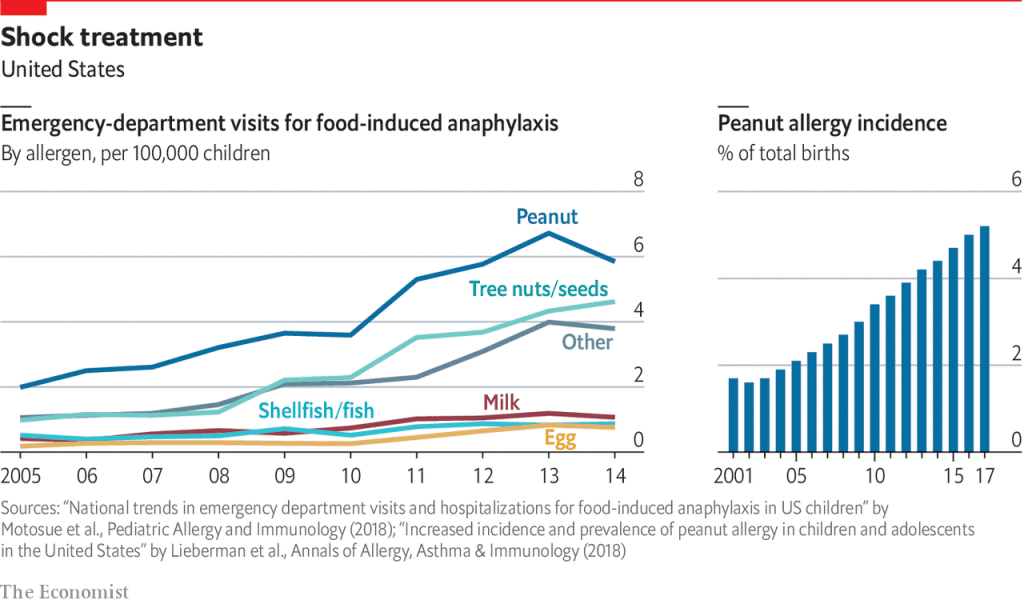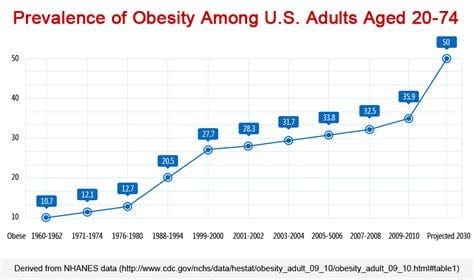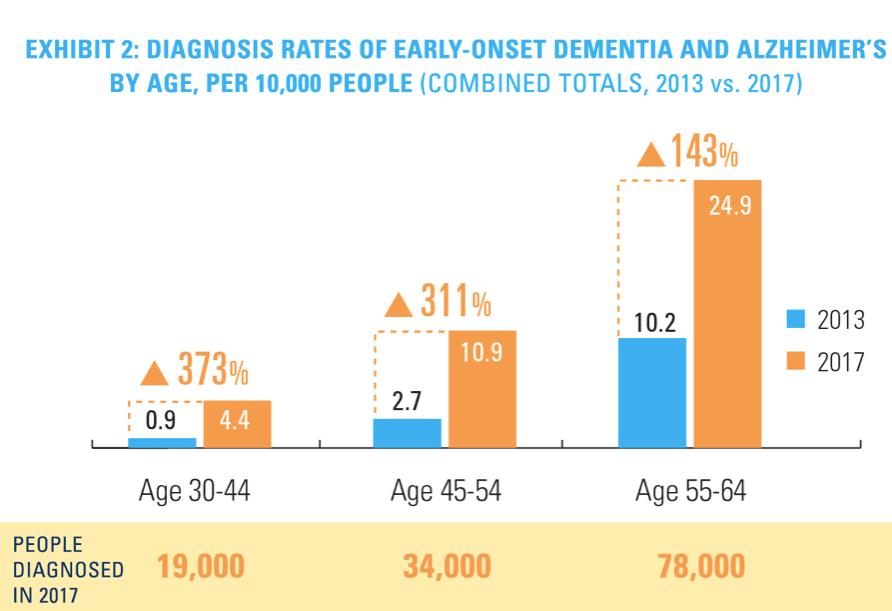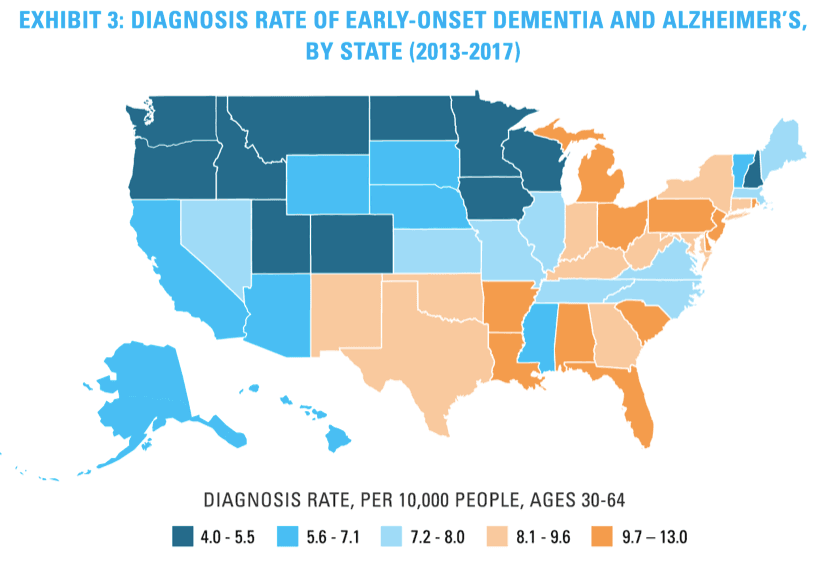Among the wonders of the western world is how many people are allergic to nuts compared to a few decades ago, and to gluten, and to a host of other things that hardly anyone was allergic to 50 years ago. Perhaps it’s a change in perception, but it doesn’t seem that way.
When I was in public school in NY, back in the 1960s, there was a subsidized lunch program serving, every day, peanut butter sandwiches. Peanut butter is nearly totally fat. It was ladled each day, from a giant tub, provided by the USDA, and slathered on USDA bread along with jelly from some other vat. The smell filled the lunch area, and the fats and sugars filled our stomaches. No one seemed bothered by the nuts, and no one showed obvious signs of passing out. And despite the ill diet, we were less obeease than today. Even today, in poor countries, thy still serve massive peanut butter dishes, or bread covered in lard, and these countries show fewer allergy problems, and less obesity in general.
Perhaps it is the lack of exposure to peanuts in the US that caused the allergy (sounds almost plausible), and maybe it’s the dietetic food that causes obesity, and the glut of non-gluten that causes gluten allergies. These connections may be false, but If true, it would suggest we’re in for many more problems.
Moving to depression and dementia. We’re seeing more and more of both, and at earlier ages. In our era, virtually everyone over 80 shows signs of clinical dementia, often Alzheimer’s dementia, but the rates are rising, especially in those 55-70, and it seems most every adult is depressed. I don’t know why, though lots of people on the internet have speculative explanations. There are also cures, and perhaps some work. The research behind at least one of the best hopes for an Alzheimers cure was shown to be falsified, just made up. Not that funding was stopped quite, highlighting another problem that is becoming more common: people in trust positions no longer behave in a trustworthy way. Nor are they punished for lying. Strange to add that an anti-obesity drug, Metformin, seems to actually work at weight loss, and helps against Alzheimers dementia. Then again, from other research, it seems that obesity protects from dementia.
Some of the problem seems to be societal, a lack of friendship and companionship. I could imagine that isolation leads to dementia, depression, and weight gain. Another thought, pushed by RFK Jr., is that new drugs and vaccines are responsible for allergies and ADHD, along with changes in diet. It’s possible. At least some comes from early diagnosis, and a change in the definition of dementia. Perhaps that’s the reason for the significant difference state to state. Yesterday’s curmudgeon is redefined as depressed, and drugged (more in some states than others), and becomes isolated (again more in some communities). The disoriented, lonely patient is then given anti anxiety drugs and classified as a dementia patient. It happens in some cases, but there seems to be a rise in real dementia too: the sort of stumbling and blankness that reflects general brain deterioration. As for ADHD, I’m still not convinced this is a new real disease; it could be that’s how boys always behaved.
Would we be less depressed or demented or less autistic with different vaccinations, or different foods, or with more human interaction? Would people be less isolated if they were less depressed or autistic? RFK’s family now claims that RFK Jr is demented himself for even asking these questions. My guess, totally unsupported is that the rise in allergies, dementia, obesity, and depression are related somehow, but I’m not convinced that RFK Jr. has picked out the right connection. What causes what? Perhaps someone can use statistics, or biology experiments to help untangle this stuff. It seems horribly important to the majority of Americans.
Robert Buxbaum, Sept 10, 2024. There was a. bit of a joke in the last comments: my daughter got a degree in epidemiology, and is employed in part to answer just the sort of questions I’ve posed.







